Regulierung internationaler Finanzmärkte und Banken
Diese Forschungsgruppe analysiert Ursachen und Konsequenzen von internationalen Aktivitäten von Banken sowie den regulatorischen Rahmen, innerhalb dessen globale Banken operieren.
International aktive Banken können eine effiziente internationale Kapitalallokation vereinfachen und zur internationalen Risikoteilung beitragen. Allerdings können sie auch Instabilitäten generieren und zu einer Übertragung von Schocks über nationale Grenzen hinaus beitragen. Dies ist einer der Gründe für die aktuelle Re-Regulierung des internationalen Bankensystems.
Die Forschungsgruppe trägt auf drei verschiedenen Wegen zur Literatur bei. Erstens analysiert die Gruppe empirisch, warum internationale Banken global aktiv sind und wie Schocks im Finanzsystem übertragen werden. Zweitens untersucht die Gruppe das Entstehen von systemischen Risiken und Ungleichgewichten im integrierten Bankenmarkt und die sich daraus ergebenden Konsequenzen für die Realwirtschaft. Drittens werden die Auswirkungen von Änderungen bezüglich der Bankenaufsicht und Bankenregulierung analysiert, mit einem besonderen Fokus auf dem europäischen Integrationsprozess
IWH-Datenprojekt: International Banking Library
Forschungscluster
Wirtschaftliche Dynamik und StabilitätIhr Kontakt

Mitglied - Abteilung Finanzmärkte
PROJEKTE
07.2017 ‐ 12.2022
Die politische Ökonomie der europäischen Bankenunion
Europäischer Sozialfonds (ESF)
Ursachen für nationale Unterschiede in der Umsetzung der Bankenunion und daraus resultierende Auswirkungen auf die Finanzstabilität.
01.2015 ‐ 12.2017
Dynamic Interactions between Banks and the Real Economy
Deutsche Forschungsgemeinschaft (DFG)
Referierte Publikationen
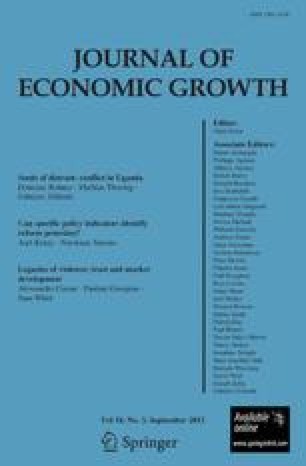
Financing Choice and Local Economic Growth: Evidence from Brazil
in: Journal of Economic Growth, Nr. 3, 2021
Abstract
We study how financing non-traditional local activities, conceived here as a proxy for activity diversification, is associated with economic growth. We use municipality-level data from Brazil, a country with large geographical, social, and economic disparities observed across its more than 5500 municipalities. We find that finance to non-traditional local activities associates with higher municipal economic growth, suggesting a positive externality between the non-traditional and traditional sectors. Using large natural disasters in Brazil as sources of unexpected negative events, we find that this association between financing non-traditional local activities and economic growth becomes negative in times of distress. We find that traditional local sectors are more affected than non-traditional sectors following a natural disaster. Precisely because of the non-traditional sector’s dependence on the traditional sector, our results suggest that municipalities should restrengthen their traditional activities during adverse conditions.
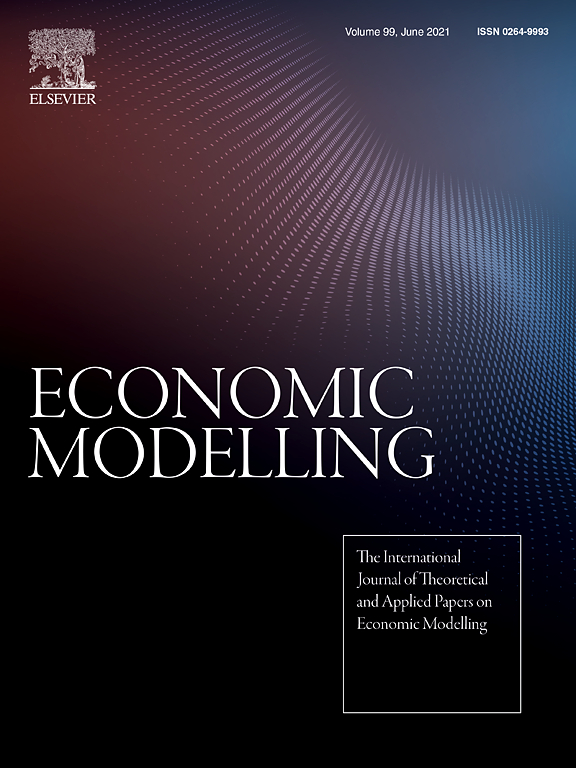
The Impact of Risk-based Capital Rules for International Lending on Income Inequality: Global Evidence
in: Economic Modelling, May 2021
Abstract
This paper investigates the impact of international bank flows from G10 lender countries on income inequality in 74 borrower countries over 1999–2013. Specifically, we examine the role of international bank flows contingent upon the Basel 2 capital regulation and the level of financial market development in the borrower countries. First, we find that improvements in the borrower country risk weights due to rating upgrades under the Basel 2 framework significantly increase bank flows, leading to improvements in income inequality. Second, we find that the level of financial market development is also important. We report that a well-functioning financial market helps the poor access credit and thereby reduces inequality. Moreover, we employ threshold estimations to identify the thresholds for each of the financial development measures that borrower countries need to reach before realizing the potential reductions in income inequality from international bank financing.
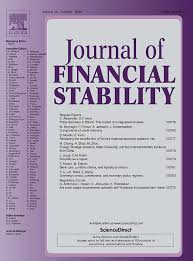
Consumer Defaults and Social Capital
in: Journal of Financial Stability, April 2021
Abstract
Using account level data from a credit bureau, we study the role that social capital plays in consumer default decisions. We find that borrowers in communities with greater social capital are significantly less likely to default on loans, even after adjusting for different levels of income and other characteristics such as credit scores. The results are strongest for potentially strategic defaults on mortgages; a one standard deviation increase in social capital reduces such defaults by 12.4 %. These results can be generalized to any mortgage default. Our results also indicate that the effect of social capital is most prominent among more creditworthy borrowers, suggesting that when given a choice, the social cost of defaulting is an important factor affecting default decisions. We find a similar impact of social capital on consumer defaults in other datasets with more detailed information on borrowers as well. Our results are robust to modeling and methodology choices, as well as controlling for other drivers of default such as wealth, income and amenities from homeownership. Our results suggest that increasing social capital via measures to build community cohesion such as promotion of owner-occupied home ownership may be one avenue to deter consumer default.

Do Affiliated Bankers on Board Enhance Corporate Social Responsibility? US Evidence
in: Sustainability, Nr. 6, 2021
Abstract
In this study, we examine whether and to what extent affiliated bankers on board may affect firms’ corporate social performance. Using a propensity score-matched sample from 2002 to 2016, we find that board directors from affiliated banks exert significantly positive influence on firms’ corporate social performance. Furthermore, board of directors from affiliated banks are negatively associated with firm investments in corporate social responsibility (CSR) activities when firms experience financial distress. Finally, we find that the effect of affiliated bankers on board on firms’ CSR performance depends on the affiliated banks’ CSR orientation, as affiliated banker directors from banks with higher CSR orientation have a stronger influence on firms’ investments in CSR activities. The results suggest that improving firm’s CSR performance is consistent with the affiliated banks’ interests.
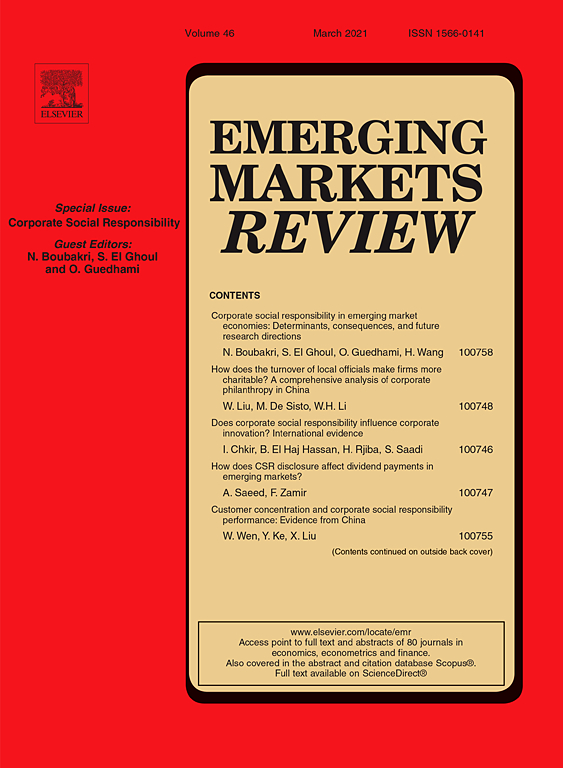
Who Benefits from Mandatory CSR? Evidence from the Indian Companies Act 2013
in: Emerging Markets Review, March 2021
Abstract
We examine the value impact of mandatory Corporate Social Responsibility (CSR) spending required by the Indian Companies Act of 2013 for large and profitable Indian firms. We find that the external mandate is value decreasing, even after controlling for prior voluntary CSR activity by firms affected by the mandate. We also find that there is systematic crosssectional variation across firms. Firms that are profitable and firms in the Fast Moving Consumer Goods sector that voluntarily engaged in CSR, benefit from CSR. Industrial firms and firms with high capital expenditures are negatively impacted by the mandate. We conclude that a one-size-fits-all approach to CSR is sub-optimal and value decreasing.
Arbeitspapiere
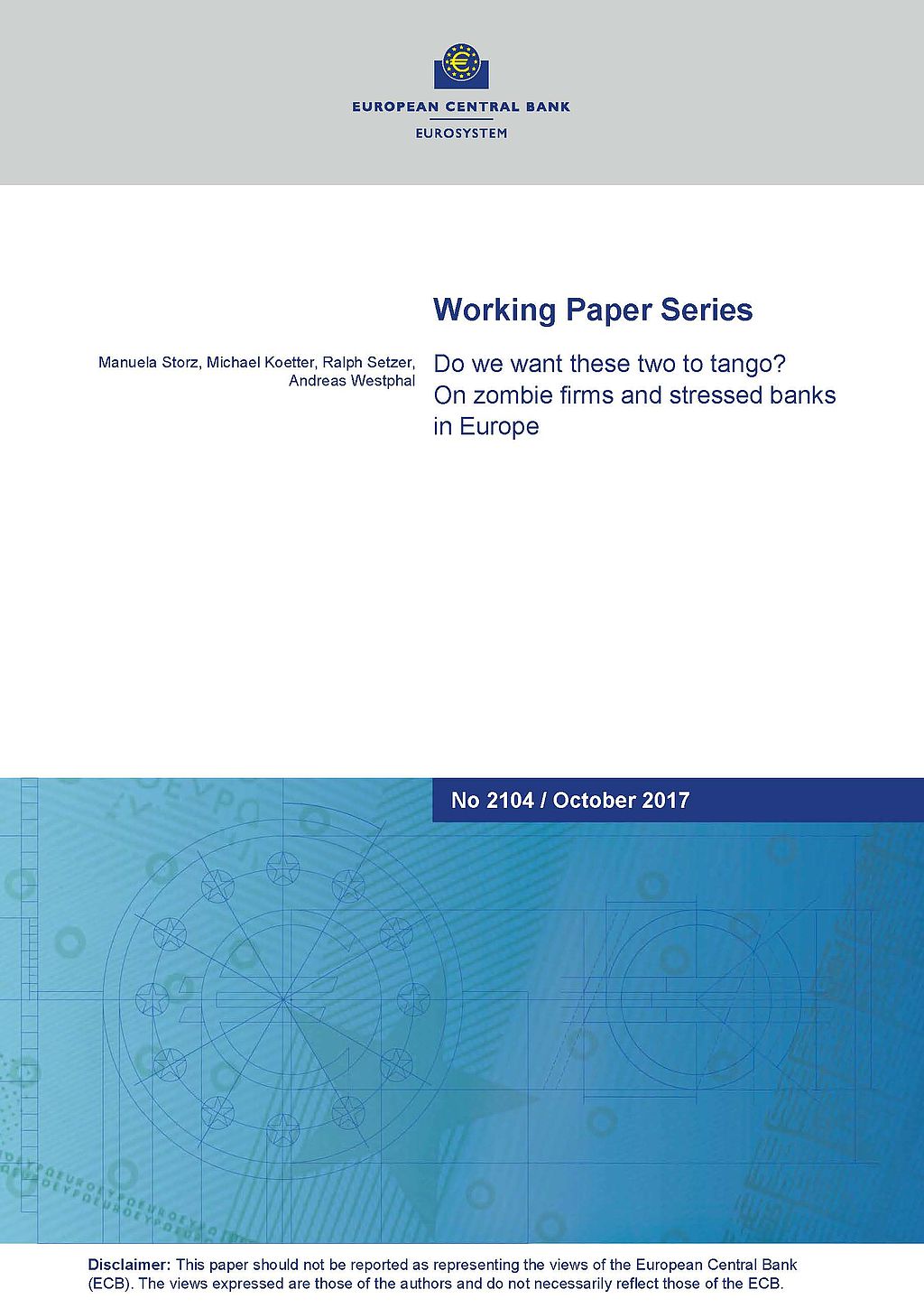
Do We Want These Two to Tango? On Zombie Firms and Stressed Banks in Europe
in: ECB Working Paper, 2017
Abstract
We show that the speed and type of corporate deleveraging depends on the interaction between corporate and financial sector health. Based on granular bank-firm data pertaining to small and medium-sized enterprises (SME) from five stressed and two non-stressed euro area economies, we show that “zombie” firms generally continued to lever up during the 2010–2014 period. Whereas relationships with stressed banks reduce SME leverage on average, we also show that zombie firms that are tied to weak banks in euro area periphery countries increase their indebtedness even further. Sustainable economic recovery therefore requires both: deleveraging of banks and firms.
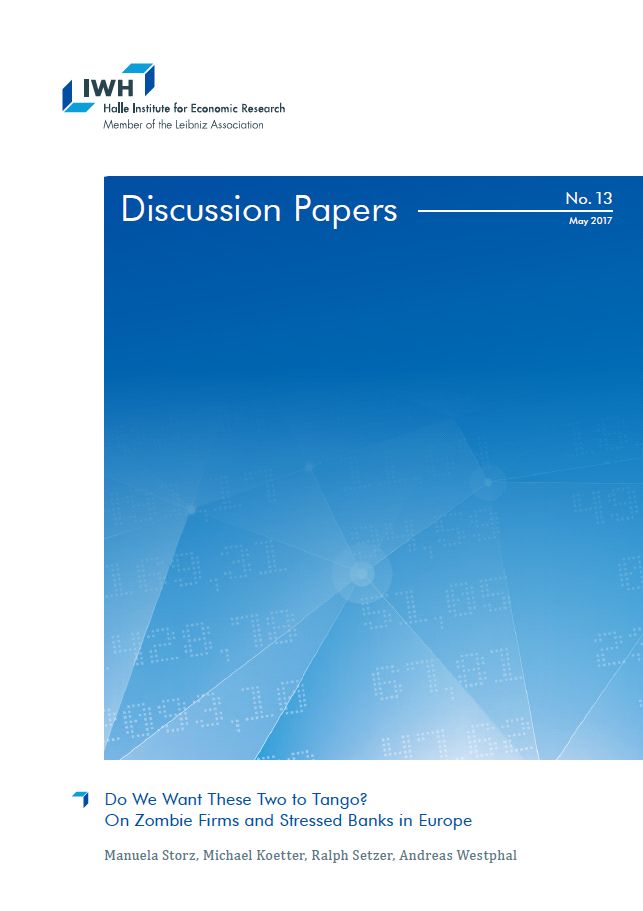
Do We Want These Two to Tango? On Zombie Firms and Stressed Banks in Europe
in: IWH Discussion Papers, Nr. 13, 2017
Abstract
We show that the speed and type of corporate deleveraging depends on the interaction between corporate and financial sector health. Based on granular bank-firm data pertaining to small and medium-sized enterprises (SME) from five stressed and two non-stressed euro area economies, we show that “zombie” firms generally continued to lever up during the 2010–2014 period. Whereas relationships with stressed banks reduce SME leverage on average, we also show that zombie firms that are tied to weak banks in euro area periphery countries increase their indebtedness even further. Sustainable economic recovery therefore requires both: deleveraging of banks and firms.

Inside Asset Purchase Programs: The Effects of Unconventional Policy on Banking Competition
in: ECB Working Paper Series, Nr. 2017, 2017
Abstract
We test if unconventional monetary policy instruments influence the competitive conduct of banks. Between q2:2010 and q1:2012, the ECB absorbed Euro 218 billion worth of government securities from five EMU countries under the Securities Markets Programme (SMP). Using detailed security holdings data at the bank level, we show that banks exposed to this unexpected (loose) policy shock mildly gained local loan and deposit market shares. Shifts in market shares are driven by banks that increased SMP security holdings during the lifetime of the program and that hold the largest relative SMP portfolio shares. Holding other securities from periphery countries that were not part of the SMP amplifies the positive market share responses. Monopolistic rents approximated by Lerner indices are lower for SMP banks, suggesting a role of the SMP to re-distribute market power differentially, but not necessarily banking profits.
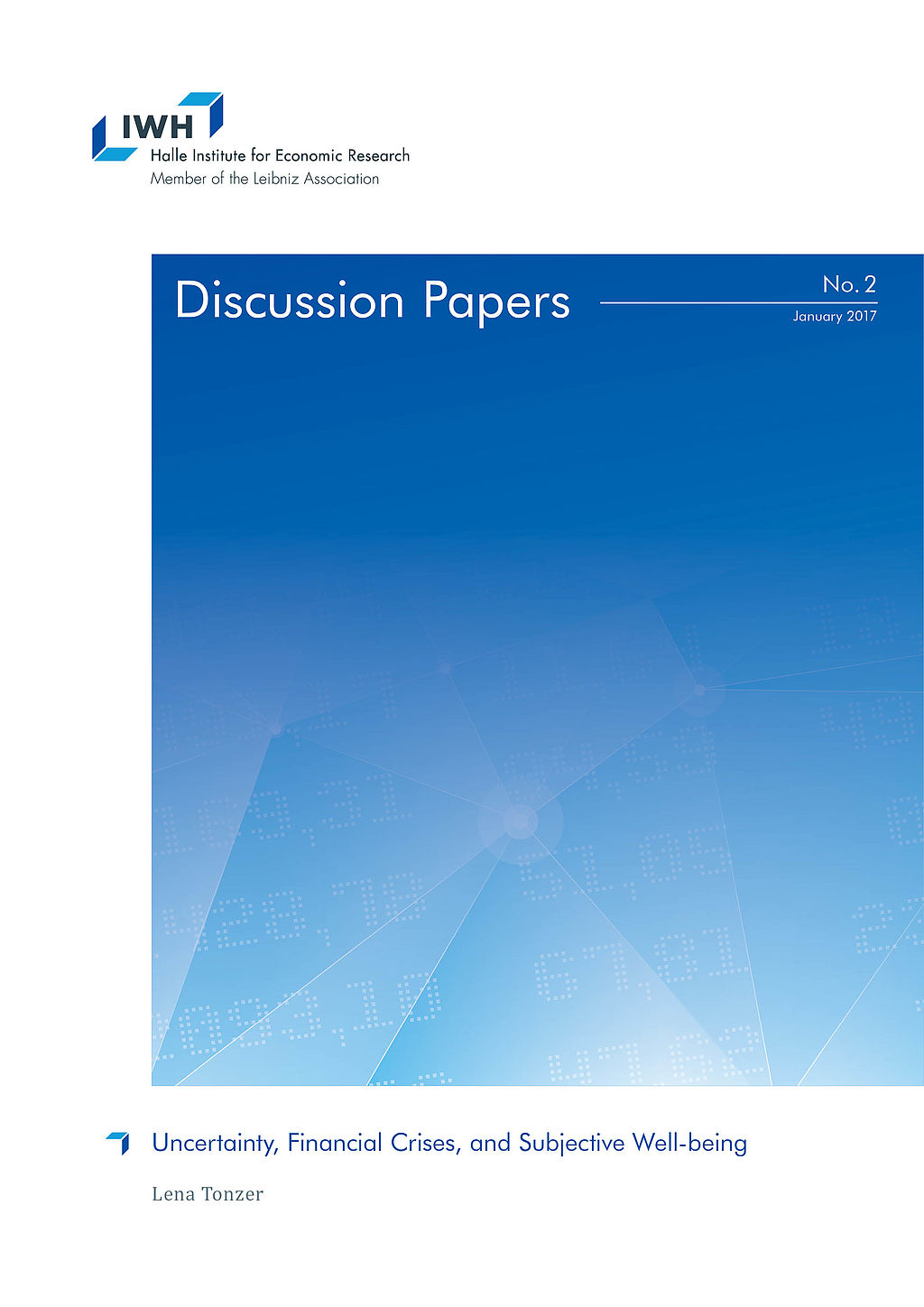
Uncertainty, Financial Crises, and Subjective Well-being
in: IWH Discussion Papers, Nr. 2, 2017
Abstract
This paper focuses on the effect of uncertainty as reflected by financial market variables on subjective well-being. The analysis is based on Eurobarometer surveys, covering 20 countries over the period from 2000 to 2013. Individuals report lower levels of life satisfaction in times of higher uncertainty approximated by stock market volatility. This effect is heterogeneous across respondents: The probability of being unsatisfied is higher for respondents who are older, less educated, and live in one of the GIIPS countries of the euro area. Furthermore, higher uncertainty in combination with a financial crisis increases the probability of reporting low values of life satisfaction.
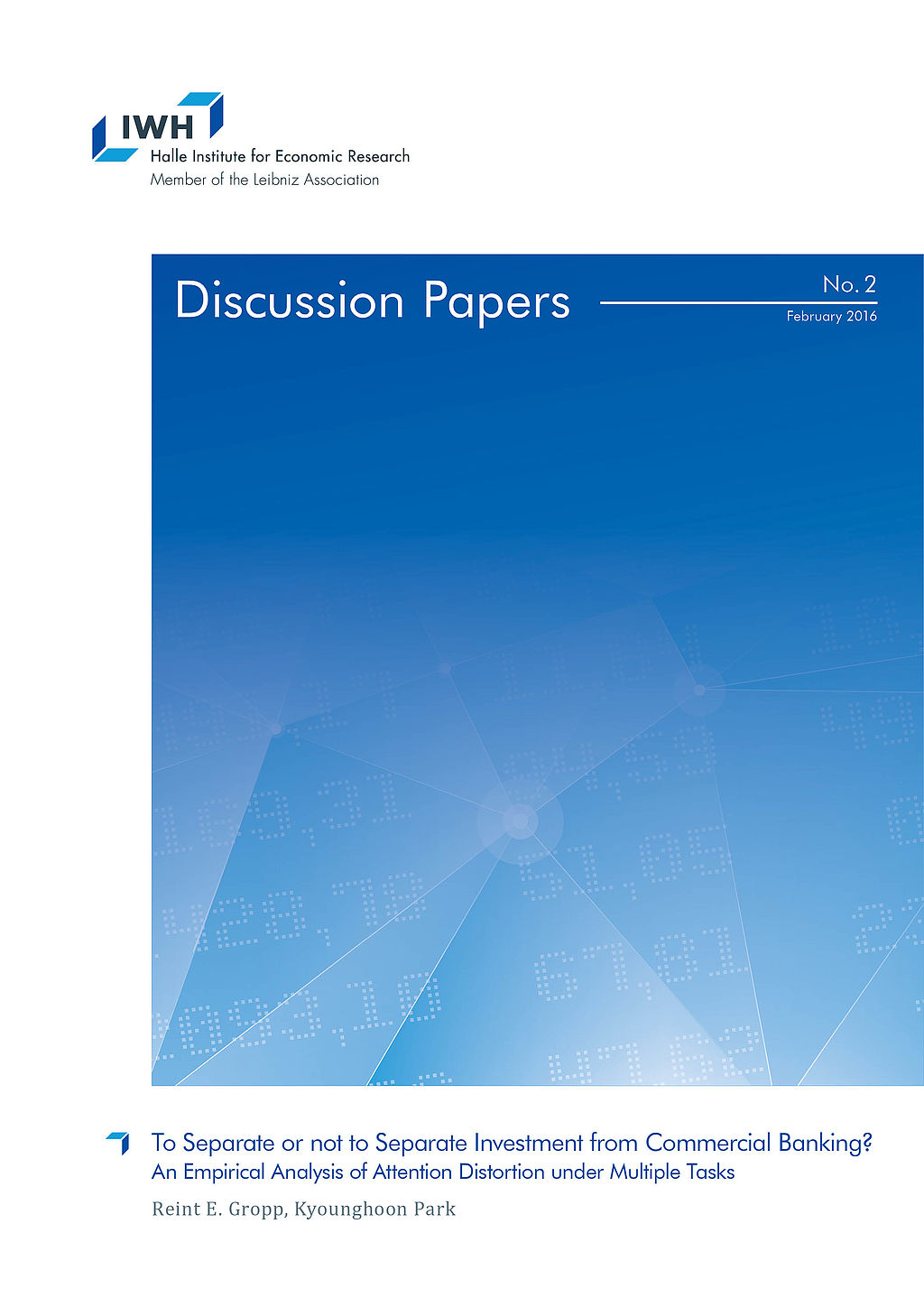
To Separate or not to Separate Investment from Commercial Banking? An Empirical Analysis of Attention Distortion under Multiple Tasks
in: IWH Discussion Papers, Nr. 2, 2016
Abstract
In the wake of the 2008/2009 financial crisis, a number of policy reports (Vickers, Liikanen, Volcker) proposed to separate investment banking from commercial banking to increase financial stability. This paper empirically examines one theoretical justification for these proposals, namely attention distortion under multiple tasks as in Holmstrom and Milgrom (1991). Universal banks can be viewed as combining two different tasks (investment banking and commercial banking) in the same organization. We estimate pay-performance sensitivities for different segments within universal banks and for pure investment and commercial banks. We show that the pay-performance sensitivity is higher in investment banking than in commercial banking, no matter whether it is organized as part of a universal bank or in a separate institution. Next, the paper shows that relative pay-performance sensitivities of investment and commercial banking are negatively related to the quality of the loan portfolio in universal banks. Depending on the specification, we obtain a reduction in problem loans when investment banking is removed from commercial banks of up to 12 percent. We interpret the evidence to imply that the higher pay-performance sensitivity in investment banking directs the attention of managers away from commercial banking within universal banks, consistent with Holmstrom and Milgrom (1991). Separation of investment banking and commercial banking may indeed be associated with a reduction in risk in commercial banking.














